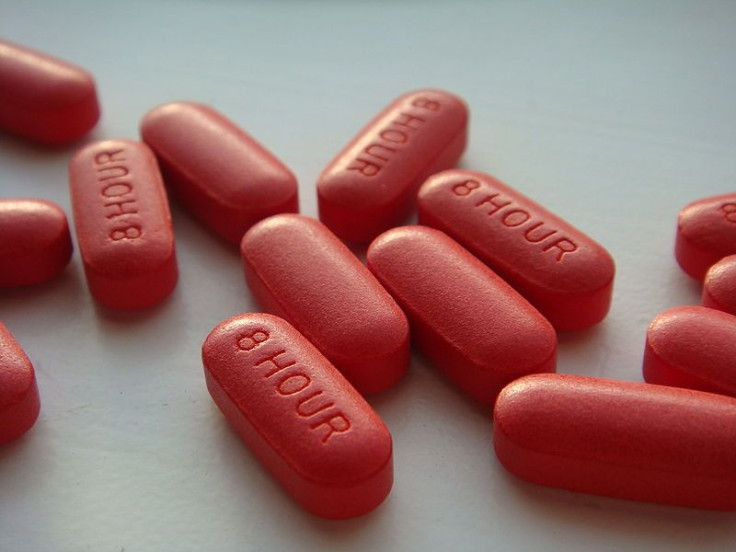Baby Aspirin Recall: Acetaminophen Mix-Up Could Lead To Overdose, Liver Failure

More details have surfaced surrounding the voluntary recall of Rugby label Enteric Coated Aspirin Tablets (81 mg, Lot 13A026) by Advance Pharmaceutical Inc. last week. New reports say that the recall was issued after a CVS pharmacist discovered that a bottle of baby aspirin was filled with acetaminophen pills. No injuries have been reported.
According to ABC News, a spokesman from Advance Pharmaceutical says that the company recalled 16,440 bottles of pills because at least one contained 500-mg acetaminophen pills. "That could put some people into liver failure," said Dr. Joe Odin of Mount Sinai hospital in New York.
Acetaminophen, commonly sold as Tylenol, is a pain reliever and fever reducer. It is used to treat headache, muscles aches, arthritis, and colds, among other things. Essentially, acetaminophen does not pose a substantial risk if taken in the correct dosage to treat the correct symptoms. Acetaminophen is not seen as dangerous to the general public but doctors say that overdose on the over-the-counter drug is not uncommon. "We hate Tylenol overdose because they're the silent overdose," said Dr. Corey Slovis of Vanderbuilt University Medical Center in Tennessee.
In fact, acetaminophen is among the most overdosed drugs in the world. ABC News reports that the drug is the number one method of suicide in the United Kingdom. And people in the U.S. sometimes overdose on it by mistake, not knowing that another one of their presciptions already contains acetaminophen.
Advance Pharmaceutical outlined the possible risks associated with the acetaminophen/aspirin mix-up in a statement:
"Consumers may be inadvertently taking Acetaminophen 500 mg instead of Enteric Coated Aspirin 81 mg which may cause severe liver damage to those who take other drugs containing acetaminophen, consumers who take 3 or more alcoholic drinks every day, or those who have liver disease. The labeled directions instructs patients to take 4-8 tablets every 4 hours, but not more than 48 tablets in 24 hours. Consumers who take 48 tablets daily of the defective product may be ingesting up to 24,000 mg of Acetaminophen, which is about six times the maximum recommended daily dose of acetaminophen (4,000 mg). "
Dr. Sripal Bangalore of New York University's Langone Medical Center pointed out that most patients who take baby aspirin throughout the day do so to keep their blood platelets from sticking together, making its use very important for patients who have undergone stent surgery. Acetaminophen does not have the same anti-clotting properties as Aspirin.
"It's pretty dangerous," said Bangalore. "Once a stent closes, there are studies to show that the risk of dying from it is pretty large."



























